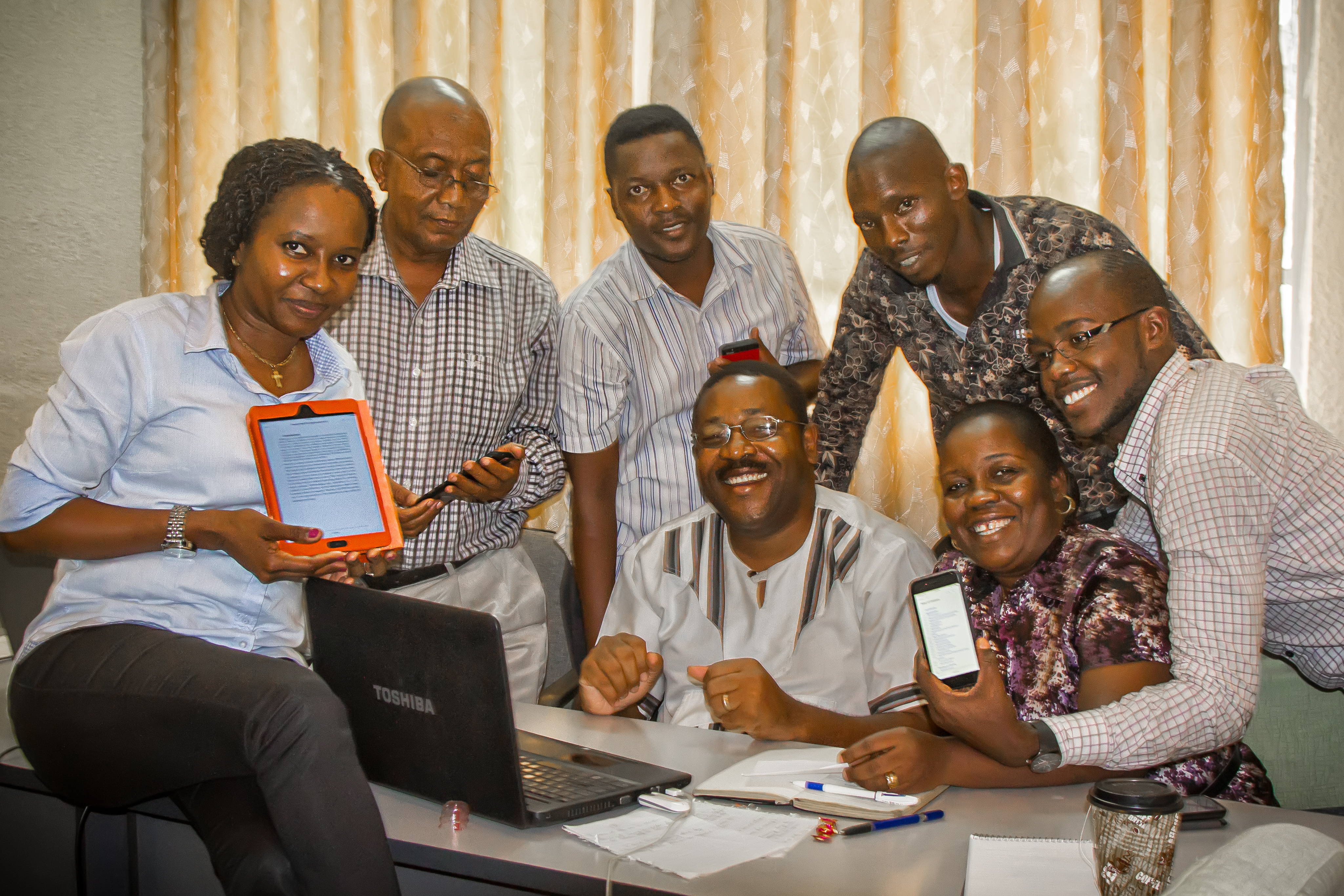
Digital strategy reflects INASP’s values and experience
At the core of INASP’s digital strategy is the premise that our approaches must be sustainable, relevant and appropriate to the needs of our partners. We reflect on how these approaches have been embedded throughout our digital development work for many years.
Supporting the use of digital technology to facilitate research communication and access to information have been a key part of INASP’s work for many years. Alongside this, digital approaches have been – and continue to be – an important element within our capacity development approaches – including the design and delivery of Massive Open Online Courses, online communities of practice, collaboration spaces and activities to support journal quality.
At INASP we believe that the appropriate use of digital technology has the potential to enhance the impact of our work. It enables:
- Greater participation in INASP’s capacity development initiatives: enabling harder to reach groups to benefit from capacity development opportunities
- Scalability: enabling our work to reach a greater number of people, and representing increased value for money
- Support at the point of need: by “being there and being found” we can make it easier for people to find and utilize INASP support and capacity development initiatives when they need it most
- Enhanced connections across the research to knowledge system to strengthen networks and relationships
As a values-led organization, our values are at the heart of all our decisions, including those about the use of digital technology and our approach to sharing our learning about what works.
The Principles for Digital Development (PDD) set out some common good practices for successful use of digital tools in international development. We officially endorse the Principles for Digital Development, which we see as being closely interlinked with our own values and embedded throughout our work. Read more about INASP’s digital strategy and how it aligns with the Principles for Digital Development here.
Here are just a few of the examples of how principles highlighted within the Principles for Digital Development have underpinned INASP’s work for many years.
Digital Principle 1: Design With the User
Since 2013 INASP has run online courses at a range of scales and with a range of partners for researchers, journal editors and others. In all our online courses, we design from the learners’ perspective, adopting a team-based approach and bringing users from the target audience on board at an early stage of the design process to act as ‘critical friends’ and provide feedback on the design and content. We pilot our courses to make sure that the needs are being met, and to make necessary revisions before the full roll out.
Digital Principle 2: Understand the Existing Ecosystem
In our work to embed a research writing skills programme at the Thai Nguyen University, we found that a fully online approach was not having the desired effects, and not meeting the user needs. In collaboration with the university, we revised our approach to incorporate face-to-face components before and after the online course.
We have worked to understand the developing role of National Research Educational Networks (NRENs) in national and regional research knowledge ecosystems, and their work to support local ICT engineers in universities to configure their networks, so that they function to provide easier access to information for researchers and students.
Digital Principle 3: Design for Scale
Online courses, and particularly our MOOCs, enable us to reach a greater number of participants across many countries, including those affected by conflict or otherwise harder to reach.
We also support local partners and community members to adapt and deliver our online courses to address the needs of their specific communities.
In addition, the development of the Journals Online platforms to host hundreds of national and regional journals provided the journals with reach and functionality that a single university-published journal would struggle to access.
Digital Principle 4: Build for Sustainability
We select our platforms with sustainability in mind – for example Moodle was chosen as our online course platform due to its proven popularity and suitability within Africa and Asia. We also encourage and build on local expertise and the expertise and knowledge within our networks – for example, many of our MOOC facilitators started as participants of our courses.
Digital Principle 5: Be Data Driven
Monitoring, evaluation and learning underpins INASP’s approaches, with quantitative as well as qualitative insight being continually collected and used to guide future work and also adaption within a programme. In line with our commitment to openness, we regularly publish reports of our findings, such this detailed impact study of AuthorAID and these reflections from our Strengthening Research and Knowledge Systems programme.
Digital Principle 6: Use Open Standards, Open Data, Open Source, and Open Innovation
Open standards and platforms are important parts of our processes, from the Moodle LMS platform used for our online courses to the Open Journal Systems-based platforms for Journals Online.
We also provide advice and information to researchers on open access and open science models and advocating for the needs of Southern researchers to be considered as these models are developed.
Digital Principle 7: Reuse and Improve
Making materials open and discoverable enables reuse. Our own course materials are all openly available for repurposing under a CC BY SA licence and AuthorAID is a partner in the new Open Science MOOC.
We also build on open resources from others. For example, our online critical thinking course uses existing video content that is available under CC licences.
Digital Principle 8: Address Privacy & Security
INASP reviews our monitoring, evaluation and learning data and other data to make sure that we only collect information that is absolute necessary for our work. In line with GDPR rules, we make clear how all personal data is used.
Digital Principle 9: Be Collaborative
Working with others and investing time and resources in building relationships within partnerships are key components of our work – see some of our recent thinking here.
We also sharing our learning and approaches through publications and events and actively seek and respond to opportunities to interact and share ideas with others in our sector and beyond.

 Previous Post
Previous Post Next Post
Next Post


